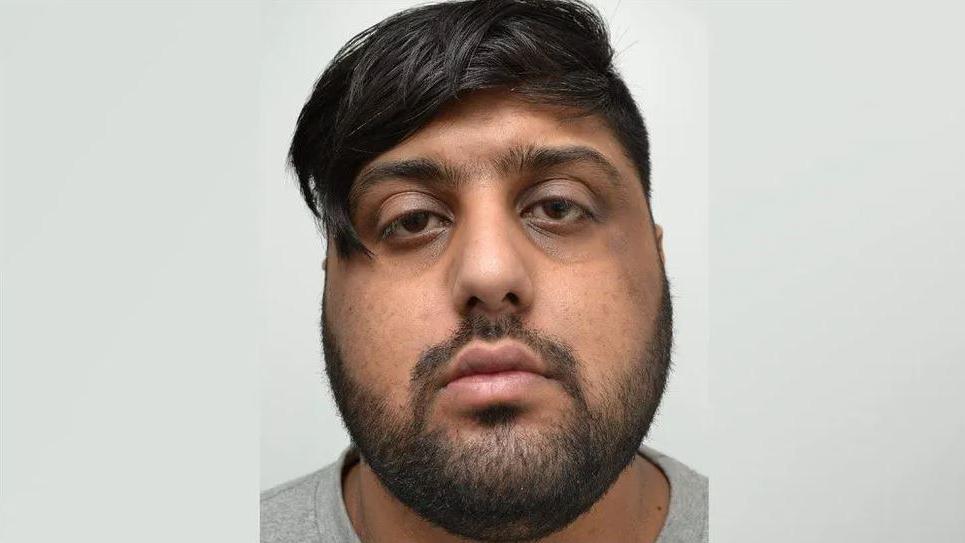The two moments of luck that foiled a bomb plot
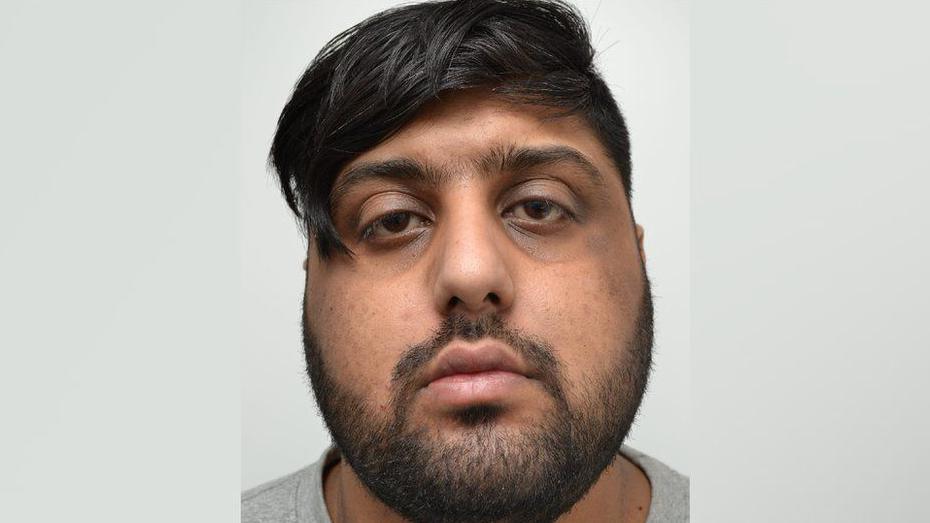
Mohammad Farooq planned to set off a homemade bomb inside St James's Hospital in Leeds in January 2023
- Published
It was a simple act of kindness and an ill-timed text message that combined to prevent a "terrorist atrocity" at a Yorkshire hospital.
In the early hours of 20 January last year, Mohammad Farooq arrived at St James's Hospital in Leeds armed with two knives, an imitation firearm and a pressure cooker bomb.
The 28-year-old clinical support worker planned to trigger an evacuation to lure patients and staff into a deadly trap.
Prosecutors said his plan was fuelled by perceived "bullying" at work and an "extremist Islamic ideology" which led him to "seek his own martyrdom" through a "murderous terrorist attack".
Jurors heard it was only a chance encounter with a patient who struck up a conversation with him that averted tragedy on an unthinkable scale.
On Tuesday, Farooq, who had already admitted firearms offences and possessing an explosive substance with intent, was found guilty of preparing acts of terrorism.
Change of plan
The first part of his scheme hinged on a bomb threat sent to a member of staff, which he hoped would set off evacuation protocols.
However, the nurse he contacted was off-duty that day and it was another hour before she saw his text message and acted on it.
The delay forced Farooq to change his plans and he instead decided to set off his homemade device in the hospital cafe.
As he waited for a shift change to maximise the number of casualties, he was spotted by patient Nathan Newby.
Mr Newby said Farooq appeared "upset and distressed" and he decided to approach him "to see if he was alright".
It was then that Farooq disclosed his sinister plans, which had, in part, been motivated by a grievance against his colleagues.
Mr Newby kept him calm and asked him about the circumstances that had led Farooq to feel the way he did.
Eventually, Farooq allowed him to call 999, and he was arrested a short time later.
'The right person'
Det Sup Paul Greenwood, head of investigations for Counter Terrorism Policing North East, said he had never seen an attack so narrowly averted.
"It's about as close as it gets," he told BBC Look North.
"Especially when it’s been disrupted by a member of the public through their intervention in circumstances where frankly most people would have walked away when they saw that Farooq had a viable bomb, when they saw the level of threat that he posed."
Det Sup Greenwood said Mr Newby exposed himself to a significant threat and called his actions that day "heroic".
"I think what he did that night was unique but he, when I’ve spoken to him, says he was just in the right place at the right time.
"I completely disagree with that. He was the right person in the right place at the right time, because most people wouldn’t have done what he did."
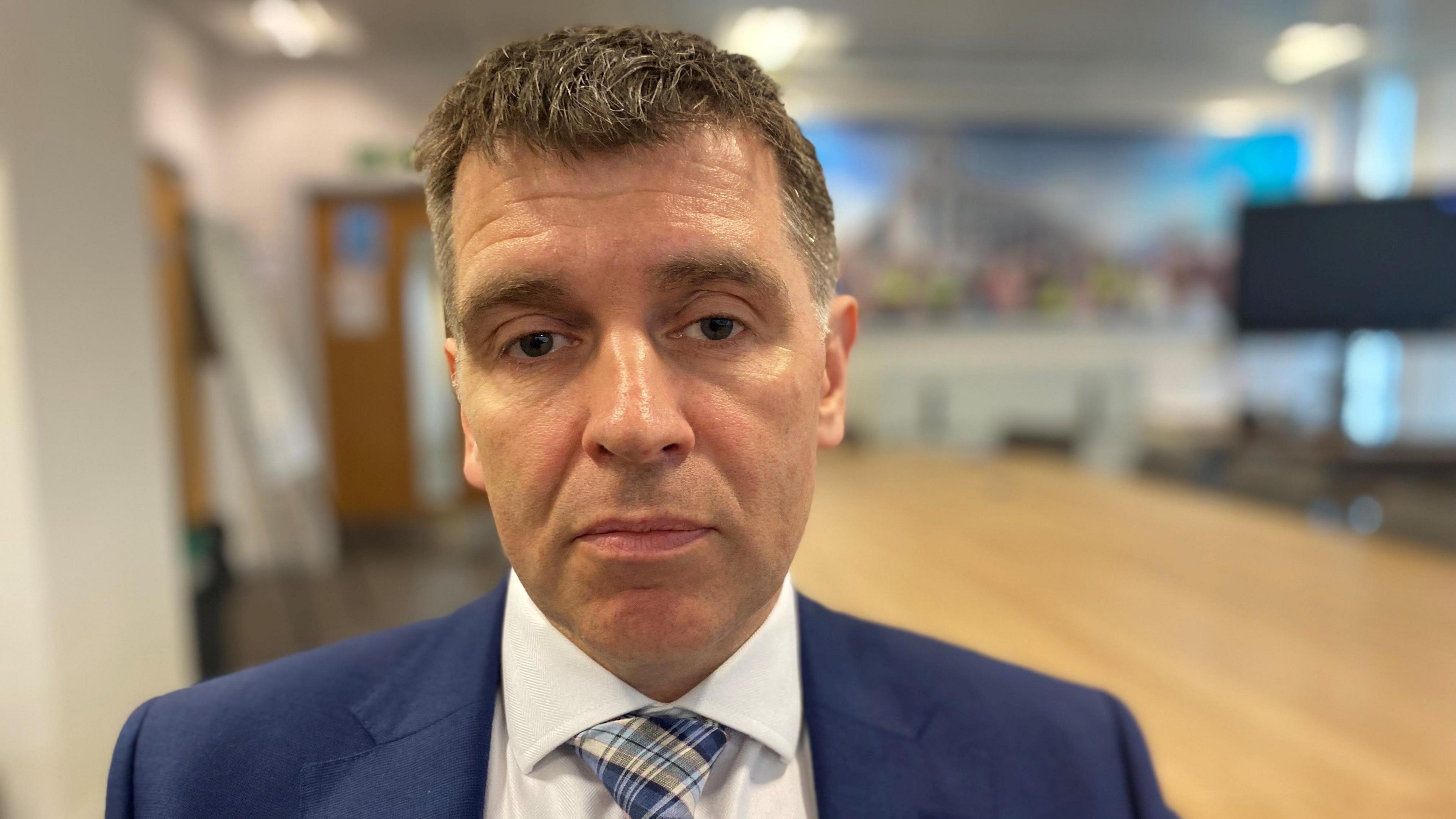
Det Sup Paul Greenwood, head of investigations for Counter Terrorism Policing North East
A trial at Sheffield Crown Court later heard how Farooq's bomb was estimated to be "double the size" of the device used in the 2013 Boston Marathon attack, which killed three and injured hundreds.
"Who knows how devastating the attack would have been, but it was a viable pressure cooker bomb," Det Sup Greenwood added.
"He intended to let that off inside a hospital, so in a confined space that could have been, especially if there’d been an evacuation, quite densely populated at the time.
"So yes, it could have been utterly devastating and absolutely, I think, [a] very high likelihood of significant loss of life."
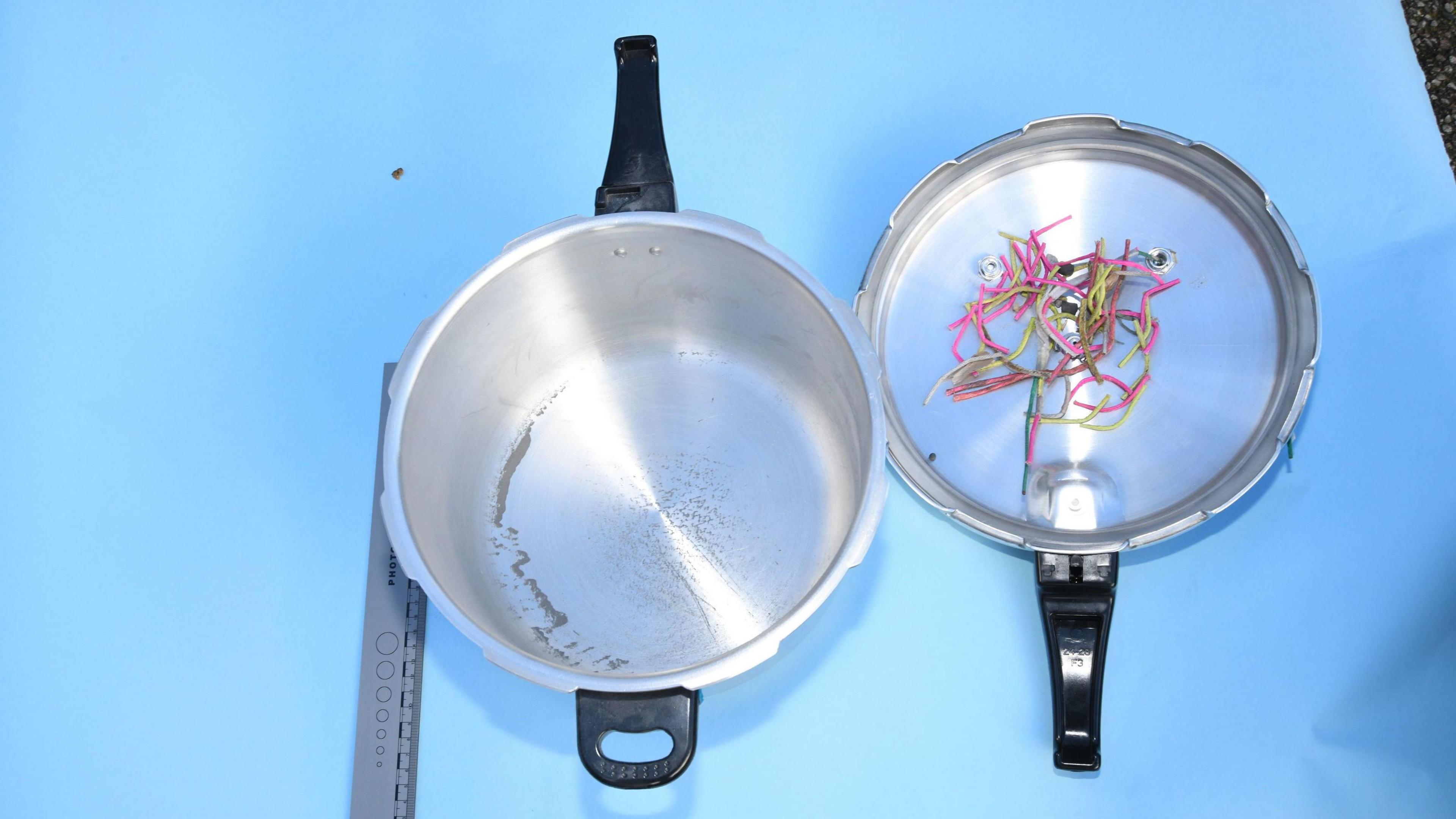
The pressure cooker recovered at the time of Mohammad Farooq's arrest.
Ahead of his three-week trial, Farooq pleaded guilty to firearms offences and possessing an explosive substance with intent.
He had also admitted having a document likely to be useful to a person preparing or committing an act of terrorism.
He denied preparing acts of terrorism, arguing his motive had been to scare his colleagues, who he accused of "bullying" him.
However, evidence gathered by police showed Farooq had radicalised himself online and downloaded documents on how to make explosives.
Police also found a screenshot of a video on how to make black powder on his phone.
The court heard Farooq initially identified two potential targets for his attack: St James's Hospital and RAF Menwith Hill, an air base near Harrogate.
ANPR cameras showed he visited RAF Menwith Hill twice in the 10 days leading up to his arrest and made an internet search for events and jobs there following one trip.
However, foiled by security and problems getting into the base, his focus shifted to St James's Hospital.
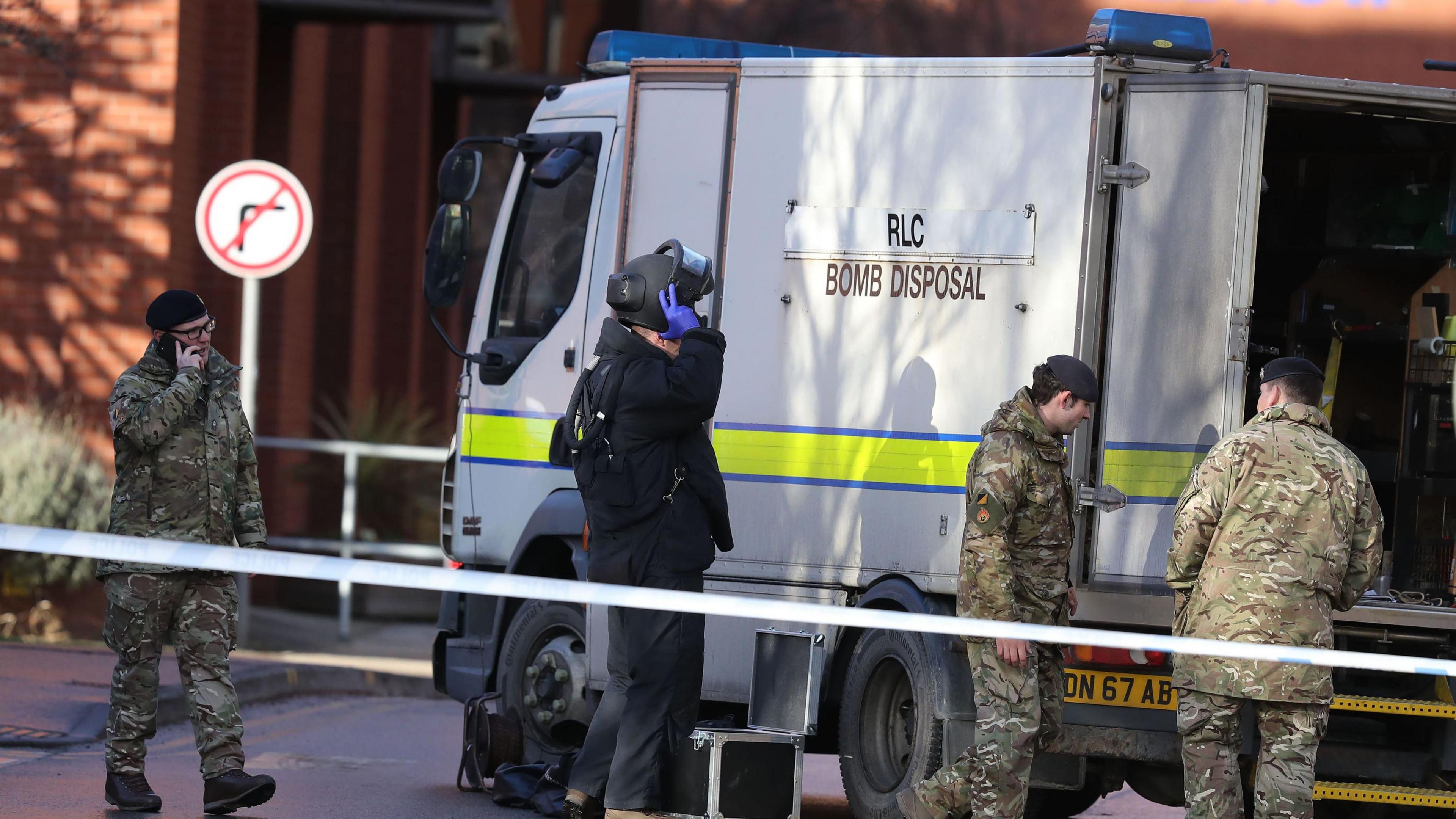
The bomb disposal squad at St James's Hospital in January 2023
Speaking after the jury's unanimous guilty verdict, Det Greenwood said: "He'd researched and prepared for his actions, building an improvised explosive device and prioritising his targets.
"He was primarily motivated by a Daesh-inspired ideology, but also by his own, deep-seated grievances."
Farooq was convicted of preparing acts of terrorism at Sheffield Crown Court on Tuesday.
He will be sentenced at a later date.
Follow BBC Yorkshire on Facebook, external, X (formerly Twitter), external and Instagram, external. Send your story ideas to yorkslincs.news@bbc.co.uk, external.
Related topics
- Published17 June 2024
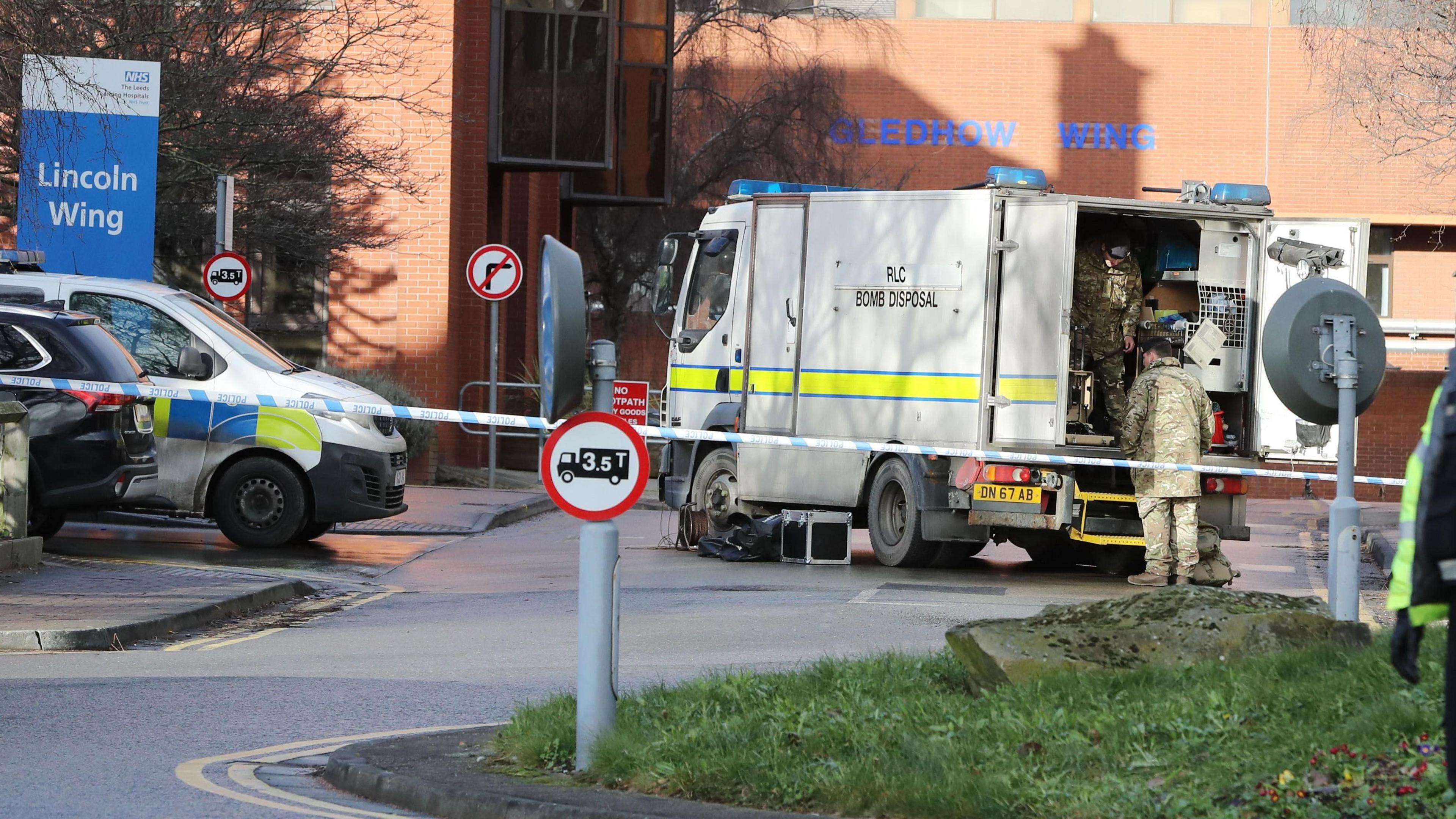
- Published19 June 2024
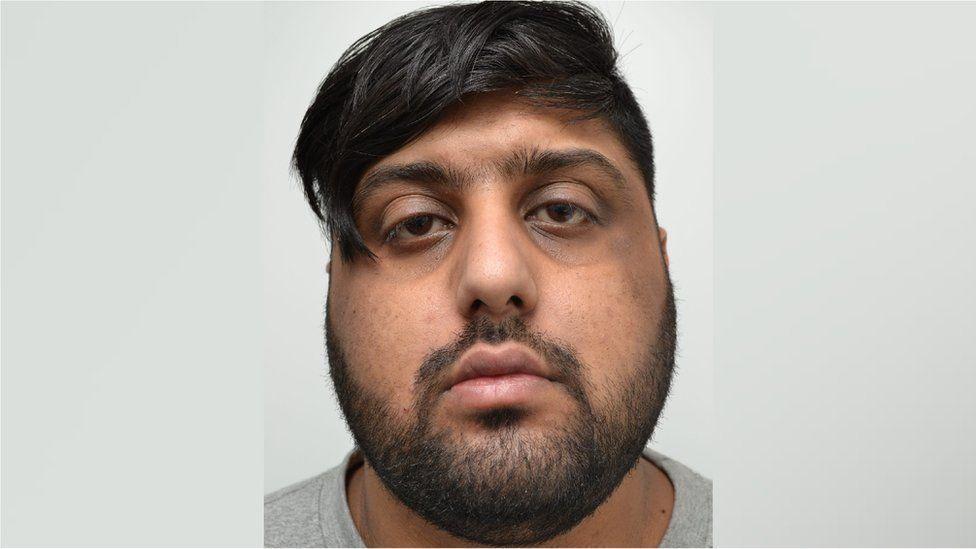
- Published20 June 2024
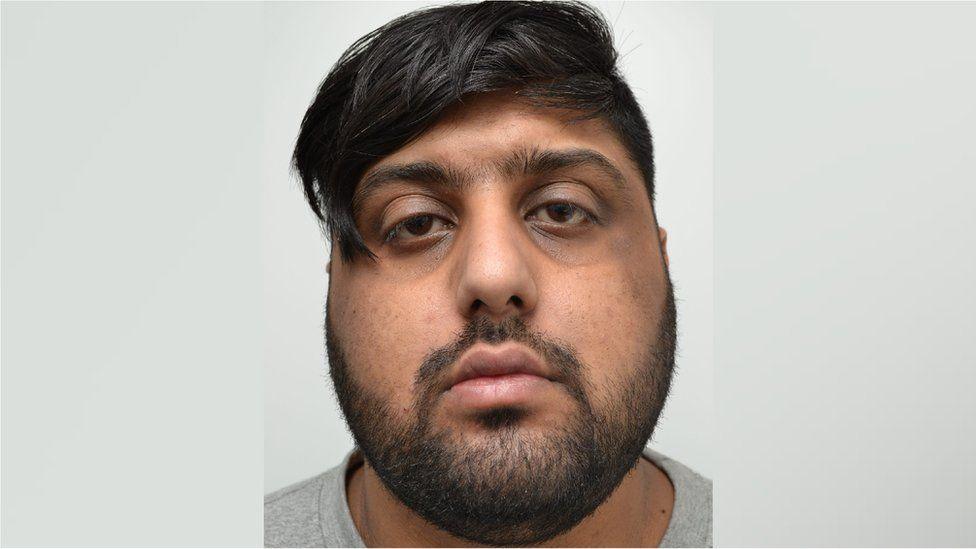
- Published24 June 2024
